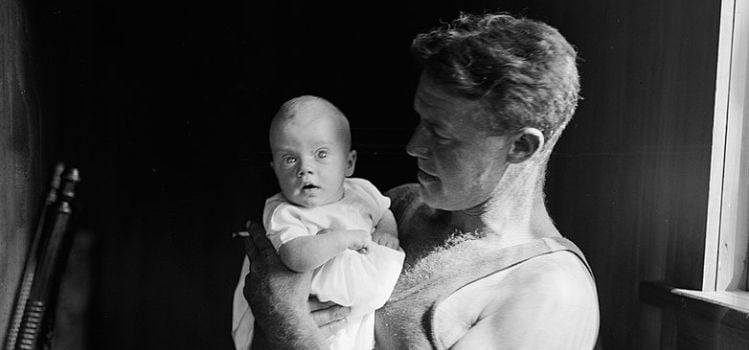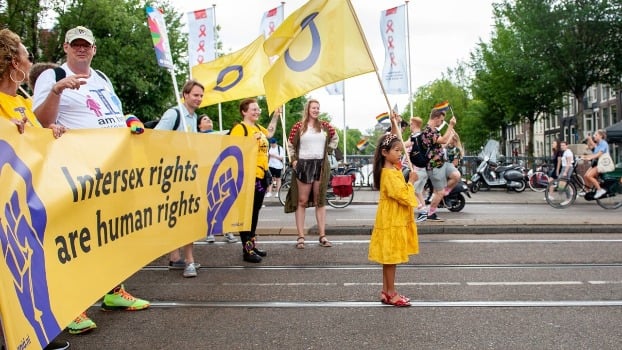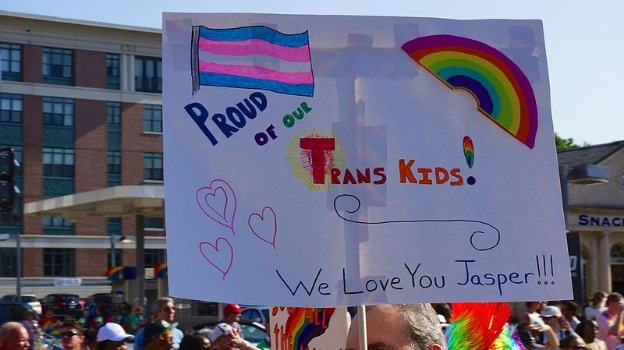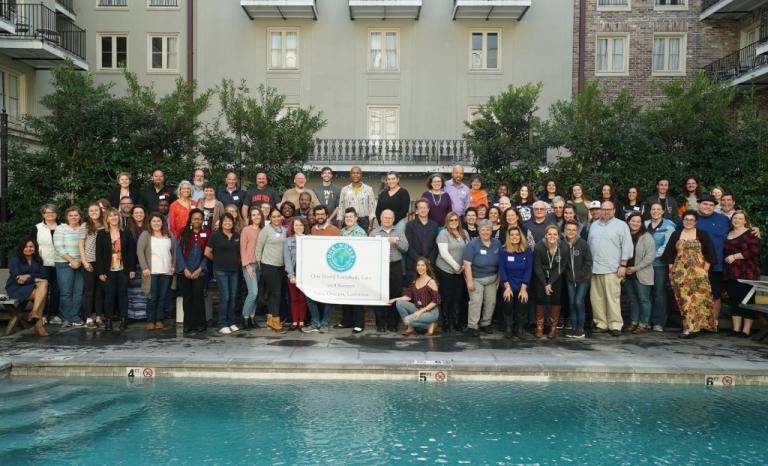In 2012, Ruth Barrett was a guest of honor at one of the oldest and largest Pagan camping festivals in the United States, Pagan Spirit Gathering (PSG), where she was asked to lead The Women’s Ritual. The ritual description, as found in the PSG schedule, specified that it was for “…women who bleed, will bleed, or have bled our sacred bloods…”
Understandably, there was some public outcry. Melissa Murray, who attended that PSG, had this to say in an interview with Pagan Newswire Collective Minnesota (you can find the whole transcript here):
“…I thought in honoring and being respectful of diversity this was something that was not inclusive or respectful. You know everyone is excluded from some events at some point, but my point was this was the ‘main’ women’s ritual. It was explained that this was not the ‘main’ women’s ritual, even though that is what it is called in the program. It was offered at a time opposite the men’s ritual…There was a separation of programming for men and women, and so those of us who didn’t fall into either of those definitions within the language that was used to exclude people were going to be left without a place to go during that time. We were left to feel ostracized and made to feel outside the community of women. That is really the heart of where my pain comes from…I hope this is not done again in the future…”
The part of this which grips me, and won’t let me go, is the bit about a separation of the sexes/genders, and how this creates feelings of ostracization. How by defining anatomical function, rather than focusing on identity, people of trans experience, people who are non-binary, and people who are gender non-conforming, are automatically excluded.
Seven years have passed since the Ruth Barret Women’s Ritual at PSG. When I visited the PSG website today, the Rite of Passage into Young Womanhood description reads like this:
“This four-day program is to honor maturing young women who have recently started their menses, and welcome them into the larger Community of women. All participants must have recently started their menses (or reasonable proximity) and have a female support person (parent, guardian or family friend) to attend the meeting on Monday and the ritual on Thursday…”
It has been seven years since the “…women who bleed, will bleed, or have bled our sacred bloods…” language caused such pain for the adult women of trans experience in the PSG community, this current language of “…maturing young women who have recently started their menses…” cannot be a comfortable thing for our adolescent trans, non-binary, and gender-nonconforming youth to hear.
I think there are many who hold the understanding of trans identity as something that is an anomaly. That people who are trans, are outliers, and that people who identify with the gender they were assigned at birth, are the norm. I think this notion creates a dialogue where folks speak of trans youth as “exceptions” to existing systems, and discuss “accommodation.”
This perspective also creates a lack of proactive movement in programs such as PSG’s Rite of Passage into Young Womanhood. That, perhaps, there is a feeling of, “we will change programming when we have a young person who needs accommodation,” rather than, “we will modify programming to proactively avoid a situation where a young person would be made to feel like a special exception in contrast to their peers.”
 Many trans, non-binary, and gender non-conforming children begin to identify themselves as at a very young age, well before puberty. Children look up to older kids and teens for what is acceptable to do and be. We need to give LGBTQ kids spaces to witness what they could be when they’re older, for every stage of life, not just adulthood.
Many trans, non-binary, and gender non-conforming children begin to identify themselves as at a very young age, well before puberty. Children look up to older kids and teens for what is acceptable to do and be. We need to give LGBTQ kids spaces to witness what they could be when they’re older, for every stage of life, not just adulthood.
I believe that by relying on anatomy as criteria as to whether or not a young person can participate in an important coming of age ritual, is missing an opportunity to provide nurturing support during critical years of development, for youth who are already feeling marginalized by the larger culture.
Of course, PSG is not the only festival that has such programming; nor are festivals the only places where rites of passage during adolescence take place. It is, however, a very well documented example, of how an issue can arise, there can be lots of good dialogue around that issue, but effective policy changes may not immediately take place.
I especially sympathize with non-profit organizations which offer such diverse programming on a large scale, running on a relatively small operating budget, relying heavily on volunteer labor. At the end of the day, I don’t feel that blaming anyone in particular, is particularly helpful.
What I will advocate for, is more public community discussion of this topic.











